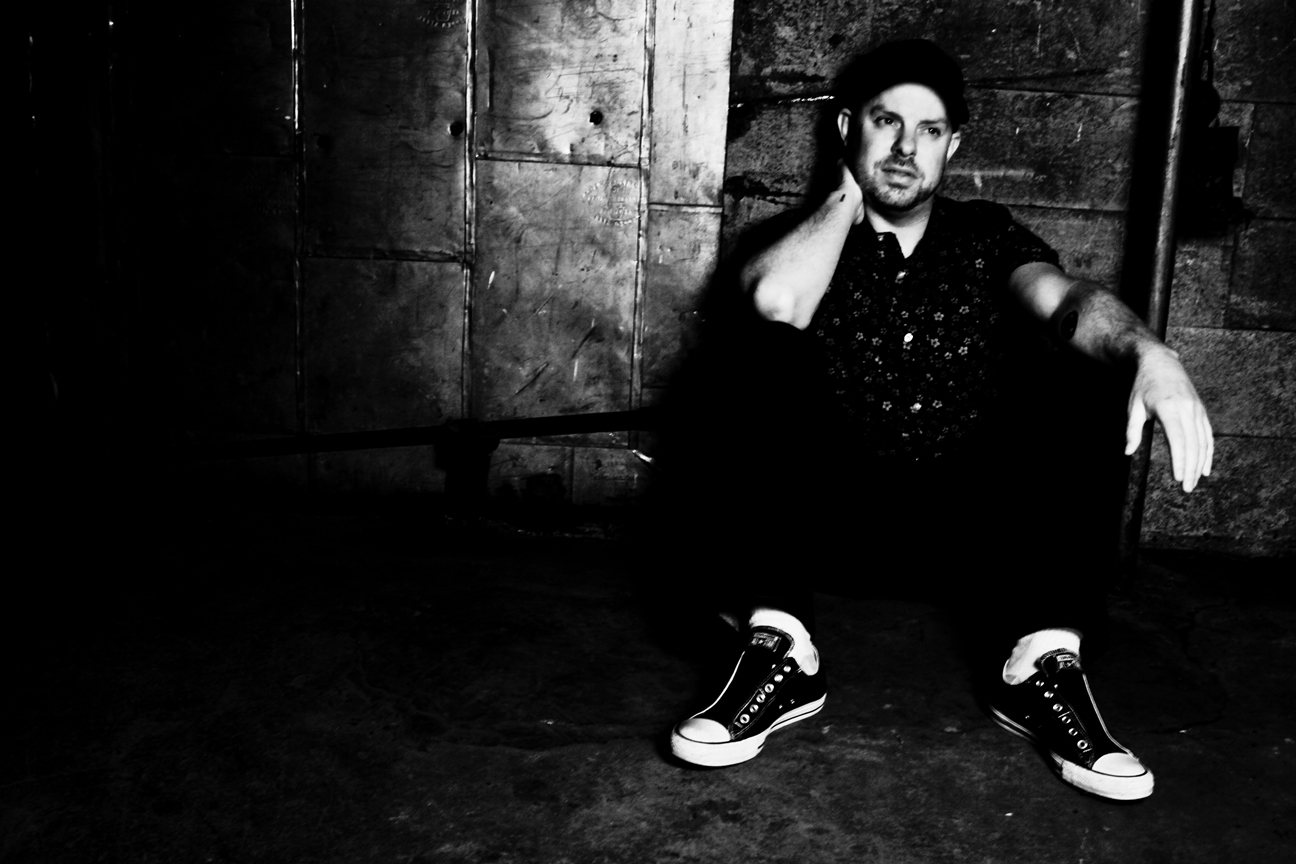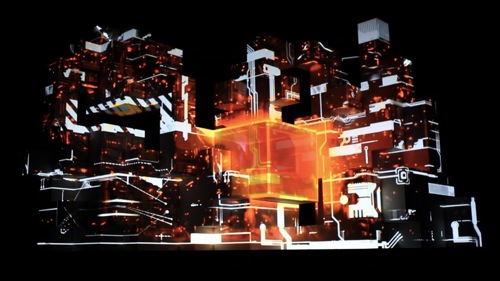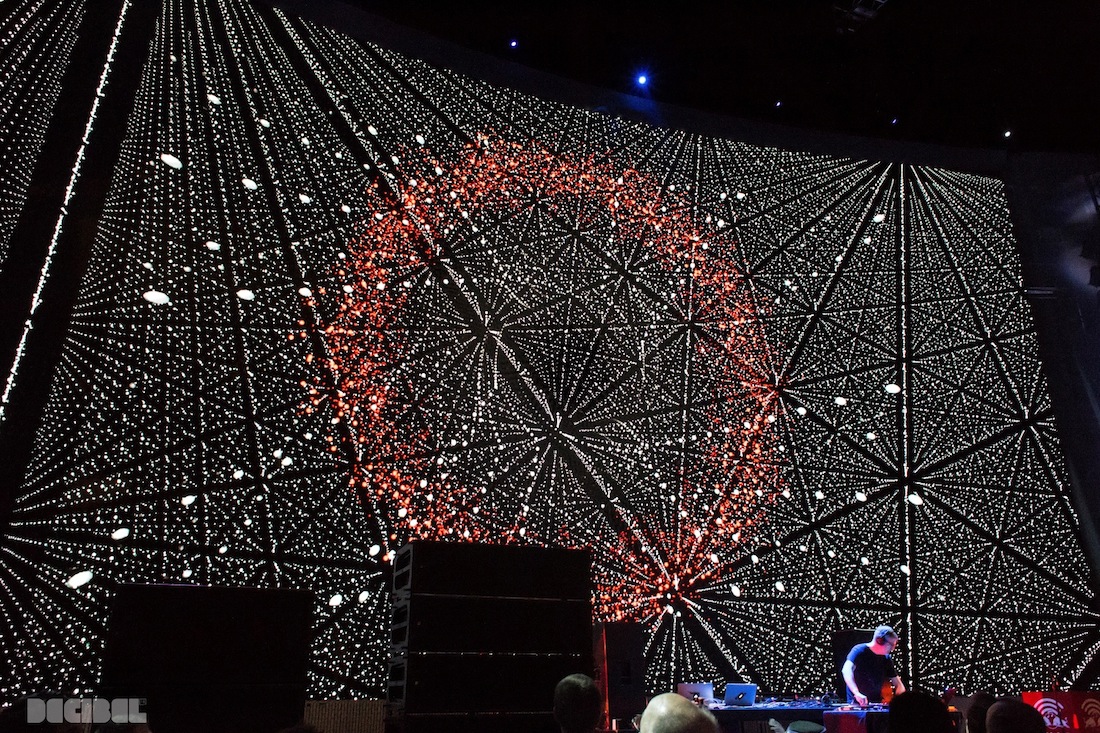Q&A: Decibel’s Sean Horton
The festival's founder reflects on 12 years of running one of the country's premiere electronic-music gatherings.

Q&A: Decibel’s Sean Horton
The festival's founder reflects on 12 years of running one of the country's premiere electronic-music gatherings.

Sean Horton is proud of what he’s accomplished—and he has every right to be. As the founder, curator and president of Seattle, Washington’s Decibel Festival, which takes place this year from September 23–27, he’s overseen the 12-year-old electronic-music gathering’s growth from an intimate, 2,500-person affair to a world-class event that pulls in ten times that amount. And he’s managed that feat without compromise, with a lineup that can go head-to-head with pretty much any astutely-curated event in America. (This year’s wide-ranging roster boasts Nicolas Jaar, Tim Hecker, Function, Bonobo, Marcel Dettmann, the Black Madonna, the Acid and many, many others—118 others, to be precise. Click here for the full lineup.) Horton, who also is a DJ and producer who works under the Nordic Soul moniker, graciously took out some time out from festival preparations to answer a few of our queries, and his responses are evidence of the satisfaction and happiness (and perhaps, a bit of the anxiety) that helming Decibel has brought his way over the years.
This is going back a few years, but can you recall the original factors involved in starting Decibel? What was your motivation? What was the philosophy behind it?
Decibel emerged out of a production company I founded in 2002 called Dreaming In Stereo. Much like Decibel, DIS focused on more experimental forms of electronic music, including IDM, techno, electro, ambient, noise, electropop, dub and downtempo. At the time, there was a major lull in electronic music culture in the United States. In 2001 through 2004, venues really weren’t buying electronic-music shows, and we were inevitably stuck doing weekday events at smaller rock venues. We were still able to pull numbers and help create what would become our core Decibel audience. It was also around that time that Ableton Live took off as a performance tool, fueling the live electronic-music culture in Seattle.

In May of 2003, I traveled to Montreal to attend third annual MUTEK festival. Aside from exposing me to some incredible music, visual art and people, MUTEK’s urban, venue-based format inspired me to look at Seattle has a possible festival location. I had already been working with several venues in the Capitol Hill area, and considering Seattle and Portland both had a burgeoning live electronic-music scene, it seemed like perfect timing to tie it all together into a weekend festival format. One of the benefits of throwing a festival is that it allowed us to attract a wider audience and secure weekend dates for the venues we had been working with.
The main focus of the festival has always been “electronic-music performance, visual art and new media,” which outside of MUTEK wasn’t really something I had seen being done in North America. The idea of having visual artists improvising and collaborating with live electronic-music performers was a pretty new concept at the time, and the technology had gotten to the point where it was more affordable. Considering so much of what we were doing revolved around new software, hardware and audio-visual technology, Decibel has always offered a free educational component to help attendees make sense of it all. In 2005 we branded this collection of workshops, panels, lectures and demos as the dB Conference, which has continued to grow in tandem with Decibel Festival over the years. Today, the conference has its own branding, partners, audience and year round activities.
The most important aspect of Decibel, however, has always been its grassroots nature. From day one, we’ve been a volunteer-based organization. The fact that we’ve grown to where we are without investors, large sponsorships, grants and outside funding is a testament to the Decibel team and the Pacific Northwest electronic music community.
Does the original ethos still hold true today?
Absolutely! Nothing has changed in relation to the organization, mission or format of the festival program or conference. The focus is still underground electronic music and visual art, the majority of which is performed live. We’re still a volunteer-run, grassroots organization. We still offer the conference as a free component to the festival. We still work with many of the same venues, crews and partners that we did when we started. What has changed is the number of venues we use (16 venues in 2012) and the diversity of the audience in terms of age, race, sex, sexual orientation, location, etc. Our inaugural program in 2004 pulled just over 2,500 people. Since 2011, we’ve been pulling between 20,000 and 30,000 attendees.
“Decibel is truly a labor of love, and sometimes that love gets me into trouble.”
Was there ever a time in that first year where you thought, “holy crap, what have I gotten myself into?” Do you still ask yourself once in a while?
Ha ha—every year. Decibel is truly a labor of love, and sometimes that love gets me into trouble. I’ve dedicated so much of my life to this music, going back to the late ’80s, and have such eclectic tastes that when it comes time to start curating the program, it’s sort of like going shopping when you’re starving. Everything looks good, and I often wind up going over budget and making decisions fueled by the heart and not the mind. There’s a reason I’ve kept my day job, lived frugally and hustled for every dime over the past 13 years. All-in-all, the people I’ve met, friends I’ve made, communities I’ve helped build and spotlight on talent that Decibel has contributed to somehow makes it all worth the effort. That said, I’d be lying if I didn’t curse the festival daily, and question whether I’m going to continue doing it each year.
Were there ever any major disasters—we can call them “learning experiences” if you like—in the early days that you can talk about?
There have been many close calls, but nothing catastrophic (knock on wood). Most of the issues we’ve dealt with over the years have stemmed from artists being denied access to the country, or simply missing flights. Every year there’s at least a couple, and I have to drop everything to try and find a suitable replacement. More than once I’ve had to call up favors from John Tejada, Nosaj Thing, Tycho, Claude VonStroke and several other West Coast artists over the years. Much love to all of them for being good sports about it.
“In terms of tailoring the festival program to fit within the current EDM scope—I avoid it like the plague.”
The electronic music scene has obviously grown immensely since Decibel started. Has that made it difficult to balance Decibel’s core ethos with commercial demands?
It’s interesting because in most cases, the more well-known acts that have performed for us, we had booked years before they’d reached mainstream success—for example Deadmau5 (Northwest debut), Lorde (Northwest debut), Zedd, James Blake (West Coast debut), Diplo, Justice (West Coast debut), Flume (Northwest debut), Flying Lotus, Nicolas Jaar (Northwest debut), Tycho (world debut a/v set), Boys Noize (West Coast debut), Dixon (West Coast debut), Moderat (US debut), Four Tet, RL Grime (Northwest debut), Claude VonStroke (Northwest debut), Duke Dumont (Northwest debut) and Flosstradamus to name a few. With the rise of EDM over the past five years, most of these acts wouldn’t within the Decibel format or budget today, even though we supported them early on. It’s frustrating at times, but it does force me to constantly seek out emerging talent, which as a DJ and music supervisor I’m luckily already doing. In terms of tailoring the festival program to fit within the current EDM scope—I avoid it like the plague. Not only does much of the music reek of homogeneity, it attracts an audience that I don’t think tends to gel well with Decibel. That said, we are continuing to see a younger audience that I would considering to be “post–EDM” in the sense that they’ve outgrown EDM culture, but still enjoy electronic music and are looking for something a bit more refined.
I’m sure there have been many sets or moments that have blown you away over the years, but are there any that you can pinpoint?
My favorite Decibel Festival moment, and there have been many, had to have been the U.S. debut of Amon Tobin’s ISAM Live that we hosted at the Paramount Theatre in 2011. To put it into context, it was the first time we’d used the Paramount Theatre, which is a gorgeously ornate 3,000-capacity theater build in 1928 in the heart of Seattle. It’s the kind of place you go see Les Misérables. The fact that we were even attempting to host an experimental a/v projection-mapped performance there was ludicrous. Now I’m terrible in front of crowds, but the tour manager was explicit that I go out and tell the audience to “please refrain from using flash photography,” which would completely disrupt the performance. I remember standing behind the curtain, shaking like a leaf and having no idea how to address the audience. After working up some courage, I stumbled out onto the stage, and everything got incredibly quiet before I opened with “Hi, I’m Sean”—and the crowd roared. I had no intention of speaking to a crowd like that, and to this day I avoid it when possible, but to see that audience react to that performance and to the festival that night left me feeling a sense of pride and accomplishment that I’ve never experienced prior. The whole night will forever be ingrained in my memory.

This year’s edition has as super-strong a lineup as ever. What is the selection process like when you are putting together your lineup? Is it done by committee, for instance?
There’s really no single process that goes into curating Decibel. I am incredibly organized and anal about building my “best of” lists each year, which (big surprise) is usually where I start when submitting offers in January. When I first start submitting offers, I honestly have no idea where or when they’ll be performing, just that I know I want to find a home for them. As I get closer to the festival date, I start to place each confirmed performer into one of several categories, which often includes performance format (live, DJ, visual), label, genre, era, location and even aesthetic value. Working off a master spreadsheet, I begin the laborious process of creating individual “showcases” that typically fall into one of these categories. In some cases, the showcases are completely eclectic, and are in turn offered to partners who happens to appreciate each artist’s work independently. In any case, each performer and each showcase is curated solely by me, which can be both exhilarating and exhausting. Aside from looking at the creative alignment of each performer, you always have to factor in the costs, travel, backline, availability, venue, format, day of the week and their exposure to the Pacific Northwest audience, which still makes up a good 60 percent of our total festival audience. When you’re dealing with 100-150 artists, performing across 10 to 16 venues, over five days; it can get incredibly challenging. Overall, the goal is for each showcase to represent a story, and each artist to represent a chapter within it. The narrative should flow naturally and allow the attendees to fully engage each performance, while enjoying the experience as a whole. Curating is a lot like DJing, actually—which luckily, I’ve been doing for 25 years.

Do you think being in Seattle—rather than, say, New York, LA or Chicago—been a help or a hindrance to Decibel’s success?
Regarding the actual size of Seattle, I do often have to readjust expectations in relation to the audience size. Artists that might draw 5,000 in LA or New York would probably draw half of that in Seattle. That said, for the size of it, Seattle’s underground electronic-music community is vast and very strong. In terms of the musical tastes of the city, living here for 20 years, I can say from experience that Seattle audiences are about as fickle as they come. The mix of predominantly white, highly technical, well-educated and proudly subversive people combines to create the ultimate hater. That said, I do find that if you can appease a Seattle audience, you’re doing something right. The benefit of Seattle is I can often take chances on more experimental artists that I probably couldn’t do anywhere else in the United States.
In recent years, Seattle has become far more transient, largely in part because of companies like Amazon, Microsoft, Starbucks, Google and Boeing hiring nationally and globally. You’d think having the influx of money and a high paid workforce would help sustain the nightlife, but the reality of the situation is it’s caused a rift, pushing the underground further below the surface, while making the mainstream much more visible. Decibel has always been a festival that prided itself on musical diversity, which in turn hopefully translates to our audience. We aren’t the 100-person illegal warehouse party that you need a password to get into and we’re not “EDM,” on the opposite end of the spectrum, by any means. In a way, I feel that Decibel represents a sort of middle ground in that we lack pretension—but we certainly aren’t pedestrian. Whether that’s indicative the cultural landscape in Seattle, the United States or the world, I’m honestly not sure. What I do know is that if you love music and visual art of the highest caliber, Decibel certainly is for you.
Do you have any plans to expand beyond Seattle?
Truth be told, I’m moving to Portland this fall. In terms of the future of Decibel, much of that depends on the success of this year’s program. We’ve had a brilliant run, and I certainly hope to continue doing something under the Decibel moniker in both Portland and Seattle. We do host over 50 year-round events outside of the festival program, and we have hosted events globally at MUTEK, Dimension and Movement over the years, so the desire and experience is there. I’m certainly open to the opportunity.
Do you think that Decibel will still exist in another twelve years?
Yes, but I know I won’t be at the helm. I have a great many aspirations over the years that I have had to put on hold because of Decibel. I want to finish my album, write a book, raise a family, travel the world and ultimately find peace both of the mind and heart. In a way, Decibel has been like a child in terms of the evolution of its growth and the effort, money and raw emotion that has gone into raising it. After 12 years, I feel like it’s grown into something unique, beautiful and hopefully sustainable beyond my involvement. Decibel was always about creating a community, and I sincerely hope that community can continue to support it for another 12 years. I’ll certainly be there front in center, hopefully with my son and/or daughter to experience it with me.

